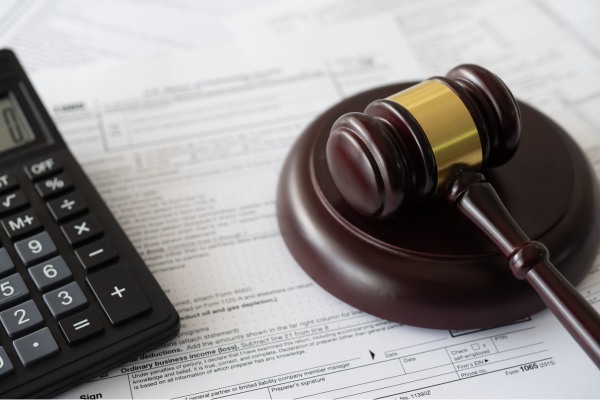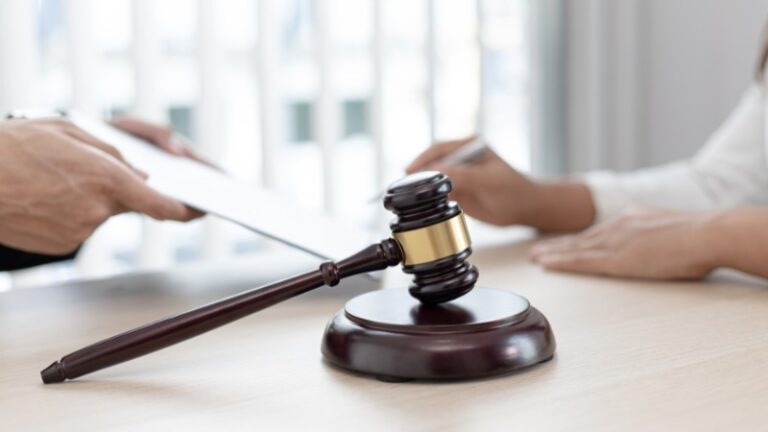What a Landlord Cannot Do in Louisiana? Know The Rights
Renting a home in Louisiana comes with its own set of rules that both landlords and tenants need to follow. Whether you’re living in a cozy apartment or managing a bustling rental property, knowing exactly what a landlord cannot do in Louisiana helps keep the rental process fair and smooth for everyone involved.
Each state has its own landlord tenant laws, and Louisiana is no different. By understanding these specific rules, you can avoid unnecessary stress, protect your rights, and keep your rental unit experience positive. From lease agreements to security deposits, these guidelines shape the landlord tenant relationship and help both sides stay clear of legal disputes.
Want to know what landlords in Louisiana absolutely cannot do? Keep reading to uncover these important details so you feel confident and informed before you sign a lease or hand over any rent payment.
Contents
- 1 Louisiana Landlord-Tenant Law
- 1.1 1. A Landlord Cannot Evict an Active Duty Service Member
- 1.2 2. The Right to Fair Housing Is Protected by Law
- 1.3 3. Landlords Must Provide a Habitable Living Environment
- 1.4 4. Tenants Have the Right to Complain Without Facing Retaliation
- 1.5 5. The Right to Fair Eviction and Lease Termination Must Be Respected
- 1.6 6. Security Deposits Must Be Returned Lawfully and on Time
- 1.7 7. Landlords Must Provide Prior Notice Before Entering the Property
- 1.8 8. Landlords Must Follow All Legal Financial Obligations and Restrictions
- 1.9 9. Lease Modifications and Renewals Must Comply with the Law
- 2 Conclusion
- 3 FAQs
Louisiana Landlord-Tenant Law
When you sign a lease agreement in Louisiana, you’re stepping into a unique rental world shaped by state and federal rules. Here, both landlords and tenants share responsibilities that go beyond simply paying rent or keeping the rental unit clean. The lease sets the stage, but it can’t ignore important protections under Louisiana law and the federal Fair Housing Act.
Louisiana is often called a landlord-friendly state, and for good reason. There’s no rent control, so landlords can decide how much they want to charge for monthly rent. This freedom might sound great to property owners, but it also means tenants need to read every line of their lease terms carefully. If you’re thinking about a fixed-term lease or a month-to-month lease, understanding your rights can save you from unexpected surprises later.
It’s also worth noting that lease terms can’t override your basic rights. Even if a landlord includes certain conditions in a written lease agreement, they still have to follow tenant rights outlined in Louisiana landlord-tenant laws and respect Louisiana’s fair housing laws. The goal is to protect tenants while giving landlords a clear path to manage their rental property without overstepping the line.
Whether you’re reviewing a rental agreement, thinking about lease renewals, or worried about unpaid rent, knowing these laws helps you stay confident. Once you understand the framework, you’ll feel more prepared to handle any bumps that come up in the landlord-tenant relationship.
1. A Landlord Cannot Evict an Active Duty Service Member

Military service demands focus, sacrifice, and long periods away from home. The last thing a service member should worry about is losing their rental unit while serving the country. That’s why the federal Servicemembers Civil Relief Act (SCRA) exists.
Under this law, a landlord cannot evict an active duty tenant in Louisiana for unpaid rent without first going through the court. Even then, the court can grant extra time, sometimes up to 90 days, so the service member can address the issue without rushing home or facing sudden lease termination.
This protection isn’t a free pass to break all lease terms. If there’s serious property damage, illegal activity, or a clear lease violation, eviction can still move forward through the usual legal process. Landlords and tenants both need to understand these limits to avoid legal disputes and unexpected conflicts.
Landlords who ignore the SCRA can face serious legal trouble, including fines and possible lawsuits. Respecting these rules doesn’t just protect tenants, it strengthens the trust and fairness at the heart of every landlord-tenant relationship in Louisiana.
2. The Right to Fair Housing Is Protected by Law
Choosing a place to live is more than signing a lease agreement or dropping off a security deposit. It’s about feeling safe and welcomed from the first visit to the final rent payment. That’s why the federal Fair Housing Act and Louisiana law protect tenants from discrimination at every turn.
A Louisiana landlord cannot refuse to rent to someone or create unfair lease terms just because of a tenant’s race, religion, family status, or disability. It’s also illegal to run ads that hint at bias, set different monthly rent for certain groups, or deny necessary repairs and reasonable changes to the rental unit for tenants with disabilities. These actions break not just federal and Louisiana landlord-tenant laws but also basic human decency.
When a landlord fails to follow these fair housing laws, the fallout is serious. Legal battles, large fines, and even being forced to pay damages can quickly follow. Beyond the courtroom, these violations destroy trust and damage the entire landlord-tenant relationship.
Fair treatment isn’t an optional courtesy, it’s a right. By following Louisiana landlord-tenant laws and keeping lease terms fair for everyone, landlords protect tenants and build stronger, more respectful rental communities.
3. Landlords Must Provide a Habitable Living Environment

Nobody wants to step into a rental unit only to find leaking pipes, faulty wiring, or a strong smell of mold. In Louisiana, providing a habitable living space is not optional. It is a clear requirement under Louisiana landlord-tenant laws and an expected part of any lease agreement.
Habitability means the property must be safe, clean, and fully functional. It covers working plumbing, steady electricity, proper heating, pest control, mold prevention, and reliable smoke and carbon monoxide detectors. Once a tenant moves in, landlords remain responsible for maintaining these standards and making necessary repairs.
When something breaks or creates a safety risk, landlords are expected to respond quickly. Urgent repairs should be handled within a day or two to protect tenant safety and avoid further property damage.
If a landlord fails to take action, tenants in Louisiana may have options. In some cases, tenants can arrange for the necessary repairs themselves and deduct the cost from their rent, but only after giving proper notice and obtaining court approval. They can also report serious problems to local authorities or, in severe cases, choose to end the lease agreement.
Ignoring these duties can lead to rent withholding, legal disputes, and possible penalties. Keeping a rental unit in good shape shows respect for tenant rights and helps avoid conflicts that disrupt the landlord-tenant relationship. By staying on top of maintenance, landlords protect both their investment and the comfort of Louisiana tenants who rely on them.
4. Tenants Have the Right to Complain Without Facing Retaliation
Speaking up about a leaky roof or broken heater shouldn’t make you worry about losing your home. In Louisiana, tenants have every right to point out maintenance issues or safety problems in their rental unit without fearing a sudden rent hike or a surprise eviction notice.
While Louisiana does not have a specific statute that clearly bans landlord retaliation, the courts recognize when landlords cross the line. For example, if a tenant makes a valid complaint and the landlord suddenly tries to evict them, raise the monthly rent, or cut off essential services, these actions can be seen as abuse of rights.
Landlords in Louisiana cannot use complaints as an excuse to punish tenants. A tenant’s right to report problems is part of maintaining a fair landlord-tenant relationship and helps ensure rental units stay safe and livable.
If a landlord tries to retaliate, tenants can use this as a defense in court during an eviction process or other legal disputes.
5. The Right to Fair Eviction and Lease Termination Must Be Respected

Getting asked to leave your home without warning can feel like the ground has been pulled out from under you. In Louisiana, a tenant cannot simply be pushed out of a rental property overnight. The law sets clear steps that every landlord must follow when ending a lease or moving forward with an eviction.
For month-to-month leases, landlords must provide written notice at least ten days in advance if they plan to terminate the agreement without cause. In other situations, such as a lease violation or unpaid rent, the notice period and process can vary based on the lease terms. No matter the reason, a landlord cannot ignore these requirements or force a tenant out without a valid reason.
Self-help evictions like changing the locks, removing a tenant’s belongings, or cutting off utilities are strictly prohibited. These actions can lead to serious legal disputes and may expose landlords to heavy penalties. A proper eviction process protects tenant rights and helps avoid unnecessary conflict.
Tenants also have strong defenses against unfair evictions. Claims of retaliation or discrimination can stop an eviction in its tracks and might even lead to damages against the landlord. If a landlord fails to provide written notice or tries to remove a tenant without following the rules, the lease often defaults to a month-to-month tenancy, giving the tenant extra protections.
6. Security Deposits Must Be Returned Lawfully and on Time
Handing over a security deposit feels like a final step before settling into a new home. It builds trust between tenants and landlords and acts as a promise to care for the rental unit. In Louisiana, that money is not a bonus for landlords to use however they please. It is meant to protect the property and cover specific costs when a lease ends.
Under Louisiana landlord-tenant laws, security deposits are capped at one month’s rent for unfurnished units and two months’ rent for furnished ones. When a tenant moves out, landlords must return the deposit within thirty days of lease termination. If any part of the deposit is kept, landlords are required to provide a clear, written explanation showing exactly why the money was withheld.
Acceptable deductions include unpaid rent, major property damage, or cleaning costs if the rental unit was not left in good condition. Charges for normal wear and tear, like minor scuffs on walls or small nail holes, cannot be deducted.
If a landlord fails to return the deposit on time or does not give a proper breakdown of deductions, they risk more than just unhappy tenants. They may face legal penalties, including paying back the full amount plus additional damages.
Returning security deposits fairly helps maintain a strong landlord-tenant relationship and encourages tenants to leave the property in good shape.
7. Landlords Must Provide Prior Notice Before Entering the Property
Having a landlord show up unannounced can feel like an invasion of privacy rather than simple property management. While landlords own the rented property, they do not own the right to come and go as they please. Once you sign that lease agreement, your rental unit becomes your private space, and Louisiana law respects that boundary.
Although there is no strict rule in Louisiana requiring a specific notice period before a landlord enters, common practice suggests at least twenty-four hours’ notice for non-emergency situations like inspections, repairs, or showing the unit to future tenants. This courtesy helps protect tenant rights and keeps the landlord-tenant relationship professional and respectful.
The only time a landlord can enter without giving notice is during a true emergency, such as a fire, flooding, or a serious safety threat. Outside of these situations, unexpected visits can cross the line into harassment, creating stress for tenants and even leading to legal disputes.
Excessive or repeated unannounced entries can give tenants valid reasons to claim a lease violation or pursue legal remedies, including lease termination.
8. Landlords Must Follow All Legal Financial Obligations and Restrictions

No tenant wants to feel like they’re being squeezed for extra money or blindsided by surprise charges. In Louisiana, landlords have strict financial responsibilities that protect tenants from unfair treatment and hidden costs. Trust around money is a big part of the landlord-tenant relationship, and ignoring these rules can create major headaches on both sides.
A Louisiana landlord cannot tack on unlawful fees, raise monthly rent as revenge for a tenant complaint, or hold on to a tenant’s security deposit without a valid reason. Every rent payment, security deposit, and extra fee must follow both the lease agreement and the Louisiana landlord-tenant laws. When tenants make payments, landlords should always provide receipts to keep everything transparent and well-documented.
Sometimes landlords may need to raise rent to cover higher maintenance costs or major property improvements. While they have that right, rent increases cannot be used to target certain tenants unfairly or discriminate in any way. Changes must be applied evenly and align with lease terms and Louisiana law.
When a landlord fails to respect these financial obligations, the consequences are serious. Legal disputes, fines, and even large damage awards can follow. Tenants might also seek legal remedies or refuse to pay until the issues are resolved.
Keeping the rental process fair and honest helps maintain tenant trust and prevents future conflicts. Following the rules about money not only avoids penalties but also builds a stronger, more professional foundation for every rental property in Louisiana.
9. Lease Modifications and Renewals Must Comply with the Law
You finally settle into your rental unit, only to find out the landlord wants to rewrite the rules halfway through. That sudden shock can turn a comfortable home into a stressful situation overnight. In Louisiana, landlords cannot simply change lease terms on a whim.
Once a written lease agreement is in place, the landlord must honor those lease terms until the agreement ends. Changes such as rent increases, new fees, or altered tenant responsibilities require the tenant’s clear consent. Without it, any surprise adjustments violate Louisiana landlord tenant laws and can lead to legal disputes.
When it comes to renewing or ending a lease, landlords must also follow proper notice requirements. For a month to month lease, this usually means giving at least thirty days of written notice if they plan to change terms or choose not to renew. Proper notice helps tenants decide whether to stay, negotiate, or move on without last-minute pressure.
New lease agreements or renewals must always comply with Louisiana law and federal fair housing act standards. This includes honoring habitability requirements and avoiding any lease terms that might discriminate against certain tenants.
Conclusion
Renting a home in Louisiana is more than just paying monthly rent and signing a lease agreement. From respecting tenant privacy and returning security deposits on time to following fair housing laws and avoiding retaliation, landlords have clear rules they must follow. Louisiana law offers strong protections to make sure every tenant feels safe and respected in their rental property.
Landlords who ignore these responsibilities risk serious legal and financial consequences that can easily outweigh any short-term gains. Tenants, on the other hand, need to know their rights so they can confidently handle lease agreements, address necessary repairs, and speak up without fear.
If you’re an active duty service member or represent a law firm working with military clients, verifying military status can be a crucial step to protect tenant rights under the Servicemembers Civil Relief Act. Take the next step and verify military status today through SCRACVS to ensure compliance and protect those who serve. Click here to sign up at SCRACVS and verify the active duty status.
Understanding the rules isn’t just smart, it creates a stronger, more respectful landlord-tenant relationship that benefits everyone involved.
FAQs
What are the housing code violations in Louisiana?
Housing code violations in Louisiana include failing to keep a rental unit safe, sanitary, and fully functional. Landlords must handle necessary repairs to plumbing, heating, and electrical systems and address issues like mold or pest infestations. Ignoring these landlord responsibilities violates Louisiana landlord-tenant laws and can lead to legal disputes, rent withholding, or lease termination. Tenants should notify landlords promptly about problems and understand their tenant rights to protect both their safety and their rental property.
Can a landlord change the terms of a lease during the lease period?
A landlord cannot change lease terms during a fixed-term lease without the tenant’s consent. Once a written lease agreement is signed, the landlord must follow the lease terms exactly. Changes to rent payment, new fees, or extra tenant responsibilities all require approval. For lease renewals or a month-to-month lease, landlords must provide written notice in advance.
Is a landlord allowed to evict a tenant for complaining about necessary repairs?
No, landlords in Louisiana cannot legally evict tenants for reporting necessary repairs or safety concerns. Even though there is no formal statute against retaliation, courts recognize these tenant rights as part of maintaining fair landlord-tenant laws. Retaliatory actions, like sudden lease termination or rent increases after a complaint, can be challenged in court. Landlords must focus on maintaining rental units and honoring lease terms instead of punishing tenants, protecting both tenant safety and the rental process overall.






